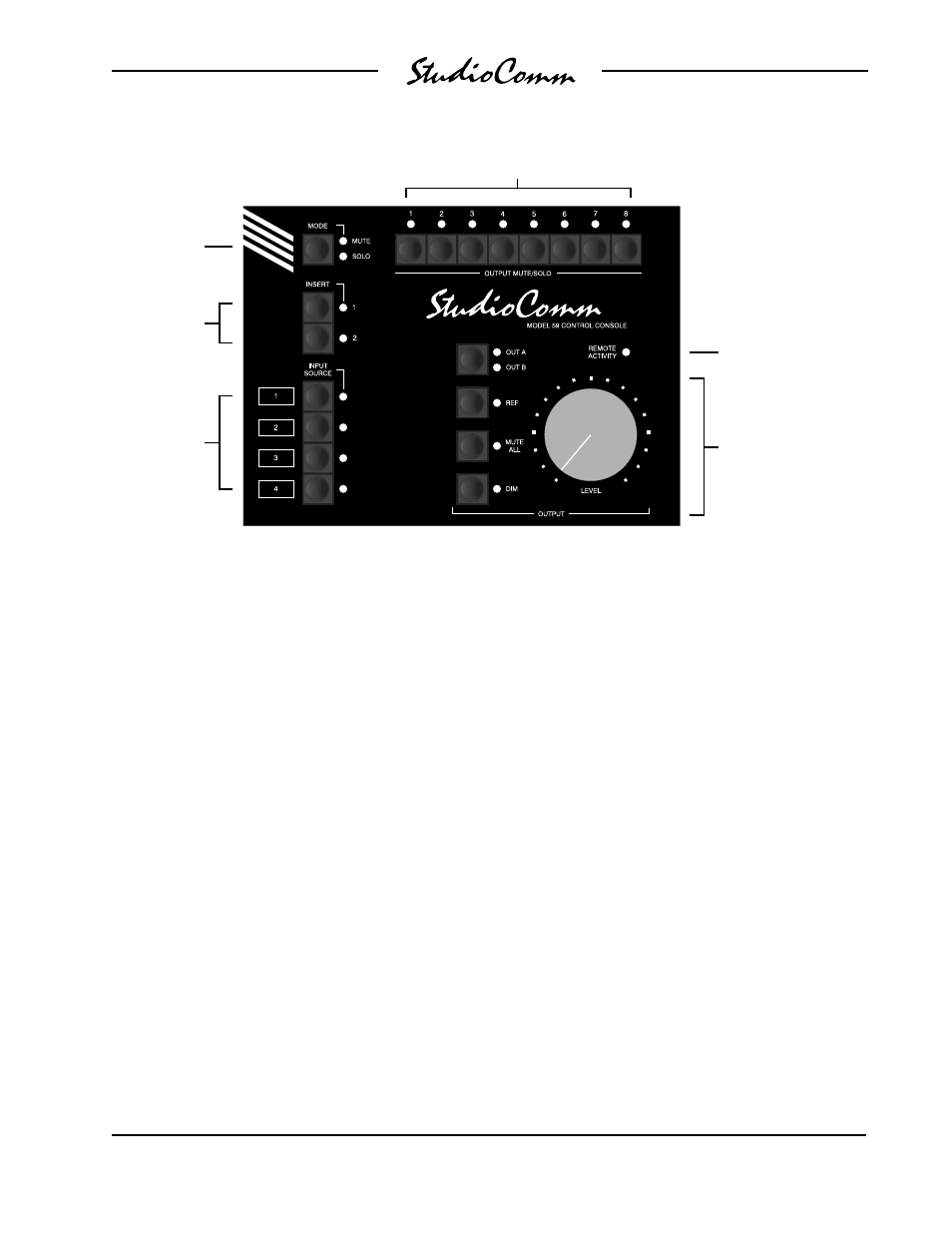Studio Technologies 58 1998 User Manual
Page 9

Model 58/59 User Guide
Issue 2, April 1998
Studio Technologies, Inc.
Page 9
for Surround
operating configuration simply depends on
the number of Model 58 Central Controller
units which are connected.
The Model 59 provides four buttons and
associated LEDs for selection of the input
source to be monitored. While in most
cases only one input source will be moni-
tored at a time, multiple inputs can be
selected for simultaneous monitoring. This
allows two, three, or all four of the inputs
to be combined (“summed”). While there
is no independent control of the input
levels, this feature can be useful for creat-
ing rough mixes from the source signals.
It is also a fast, effective means of making
a “seat-of-the-pants” check on the phase
relationship between synchronized
signals.
The monitor output level is controlled
either through the use of a large, easy-
to-use rotary control, or by enabling the
preset reference level. For operator con-
venience, the dim function allows the
monitor output level to be reduced by a
fixed dB amount. The mute all function
disables all monitor outputs by activating
the mute relays on the Model 58 Central
Controller units. A push-button switch and
two LEDs are used to select the desired
monitor output—either A or B.
The StudioComm’s two insert sections are
directly accessible using push-button
switches. While they can perform a stan-
dard insert action, they can also be used
to provide a wide range of muting, routing,
and summing functions. Each insert can
be configured, on a channel-by-channel
basis, to act in one of four modes: Mute,
maintain connection of the normal signal,
insert the return signal in place of the
normal signal, or sum the return signal
with the normal signal.
Figure 3. Model 59 Control Console Front Panel
Input
Sources
1-4
Output channel
mute/solo
Inserts 1 & 2
Mute/solo
mode select
Monitor Output
• Output A/B select
• Reference level
• Mute all
• Dim
• Rotary level control
Remote control
input
activity LED
